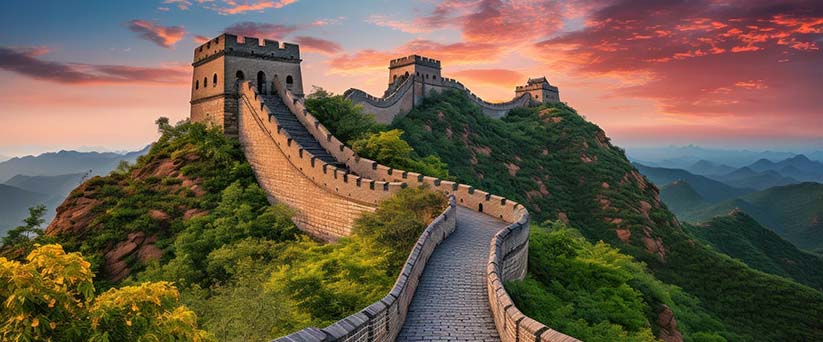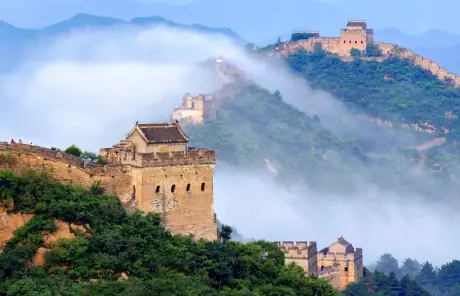20 Great Reasons For Deciding On China Tour Sites
Wiki Article
Top 10 Tips For Regional Foods And Specialties To Shop In China
1. Do your research before you go Tip Find out what each region is known for. Suzhou is known for silk, Jingdezhen is famous for its porcelain, and Tibet has thangkas.
Pro: It helps you concentrate your shopping and stop wasting time.
Con: Must be prepared and knowledgeable of the highlights of the region.
2. Buy locally to ensure authenticity
To ensure authenticity, purchase directly from their origin to ensure the authenticity of your merchandise.
Pros: Reduces the risk that copyright products could be sold and also supports local artists.
Con: Needs to travel to rural areas or less popular tourist destinations.
3. Explore the Workshops and Artists.
TIP: Try small workshops or artisan hubs instead of generic shops.
Pro: You'll get an knowledge of the art, and you can purchase directly from the creators.
Con: Handmade goods are more expensive and difficult to purchase.
4. Understanding the Cultural Significance
Learn about the history of your products, such as cloisonnes, jade sculptures or calligraphy.
Pro: Increases appreciation for the item and adds meaning.
Con: It may take a while to fully comprehend the cultural nuances.
5. Make sure you are checking the quality with care.
You can determine the quality of items by looking them up like ceramics, tea, embroidery or tea.
Pro: It will protect you from disappointment since you'll get exactly what you pay.
Cons: Some knowledge is needed to distinguish quality products.
6. Beware of mass-produced items
Explore unique, handcrafted objects as opposed to mass-produced reproductions.
Pro: You'll bring home an incredibly valuable and unique souvenir.
Con: The cost of authentic craftsmanship is costly and difficult to find.
7. Compare Prices
TIP: Try checking multiple stores or stalls to compare prices for the same specialty item.
Pro: Helps determine reasonable pricing levels and avoids being overcharged.
Cons: It could be difficult to find huge markets.
8. Teas from Trusted Suppliers
Tip A tip: If you live in a region like Hangzhou, Fujian or Longjing Tea (Dragon Well), or Tieguanyin Tea, make sure to visit tea houses that sell these teas.
Pro: Ensures authentic and high-quality.
Con: Teas of premium quality can be costly and is difficult to prove for newcomers.
9. Know Local Customs
Some sellers will expect you to negotiate or make it a part of the process.
Shopping with a cultural twist is a fantastic method to have fun.
A misunderstood understanding of customs can result in uncomfortable situations
10. Pack Carefully
Think about how you plan to transport your fragile or bulky regional items such as silk and ceramics.
Pro: It protects the items and ensures they arrive in good order.
Cons: Additional logistical issues and the possibility of shipping cost.
Pros to shopping for Regional Specialties
Unique souvenirs. These aren't items elsewhere.
Cultural Immersion - Purchasing local items connects you to the local culture, craftsmanship and culture.
Direct purchases from artists support local economies.
Pros and cons of shopping for local specialties
Security Concerns: The risk of purchasing counterfeits or inferior versions.
Transporting heavy or fragile items isn't easy.
Locally-sourced products are typically costly, and are often handcrafted, in particular.
If you follow these guidelines, you can shop confidently for local specialties, making sure you make memorable and meaningful purchases from your visit to China. Follow the top find everything you need to know about this site for more info including blue dragon temple, shanghais winter wonderland festivals lights and fun, a wonderful landscape painting lijiang river, chaotianmen dock%EF%BC%8C a major water transportation hub in chongqing, chinese wood carving originated in neolithic period, shenzhen golf club, top three buddhist temples in chengdu, shopping in xi an, wuxi a shining pearl of taihu lake, shopping in fuzhou and more.

Top 10 Tips For Fees And Photography Rules When Visiting Temples In China
1. TIP: Be sure to verify entrance fees prior to your visit. Most temples charge fees for entry that be anywhere from Y=20 to 200 Y. Plan your trip in advance.
You can plan your payment in advance to avoid surprises.
Con: Unexpected costs like the cost of special exhibitions, can arise.
2. Bring Cash or Digital Payment
Certain temples only accept cash or the most popular Chinese payment systems like WeChat Pay or Alipay.
Pro: No delay in payments.
Cons: There aren't many options for travelers who are unfamiliar with digital payments.
3. Photography signs can be found by searching for them.
You can always check whether there are any signs on the wall which state what you're permitted to take pictures. Some temples don't allow photography in sanctuaries or near sacred artifacts.
Pro: Prevents accidental disobedience and rules-breaking.
Con: Certain rules differ in specific areas of the temple. Extra attention is required.
4. Avoid Flash Photography
In places that allow you to take photos, avoid using flash since it could cause damage to artifacts, or disrupt worshipers.
Pro: The temple's environment, art and culture are protected.
Con: Low-lighting may cause less-than-ideal images.
5. Respect, Worshippers Privacy
A suggestion: Don't take pictures of people who are performing religious rituals or even praying, unless the person has given their consent.
Pro: Shows cultural sensitivity, respecting your personal space.
Con: It could restrict your ability to capture the atmosphere of the temple fully.
6. Drone restrictions will be in place
Tips. Drones are usually not permitted in temple areas. Make sure you are aware of the local regulations prior to making use of a drone for photos from above.
Pro Protection of your drone from being fined or confiscation.
Cons: Not many opportunities to capture unique angles for photography.
7. Be prepared for additional fees
You may be charged extra by certain temples to allow you to shoot photos, especially if you are using professional equipment, such as DSLRs or tripods.
Pro: It guarantees that you can legally capture images of high quality.
Cons: Increases overall trip costs
8. Dress Moderately
Tips: Dressing in a respectful manner is important in temples and wearing inappropriate attire could result in denied entry or restrictions on certain locations.
Pros: You will blend in and be respectful to the sacred setting.
Con: You may need to do some extra preparation for hotter weather.
9. Avoid the crowds in photo shoots
Visit the site in the early the morning or later in the afternoon to avoid crowds and capture photographs without obstacles.
Pro: Enhances the quality of your experience as well as photographs.
Cons: It could be difficult to adjust your schedule.
10. When in Doubt, ask for permission
Ask temple staff and signs on rules if you are unsure.
Pro: This will help you avoid making errors.
Con: Language barriers might make communication difficult.
The benefits of adhering the rules of photography and fees
Cultural Respect: Affirms local customs and religious practices.
Preservation of artifacts and objects: Avoids damage to fragile structures as well as art.
Positive Experiences Beware of confrontations with temple staff or worshippers.
Legal Compliance: Protects against penalties or fines if you violate the rules of photography.
Pros and cons of following fees as well as photography regulations
Additional costs Additional costs: Entry fees and photography permits may be a significant amount.
Limitations on creativity: These restrictions can make it difficult to capture the perfect shot.
Language Barriers: Inability to read local signage or converse with employees.
It is a time-consuming task to research and preparing ahead requires extra effort.
The observance of photography rules and fees will allow you to have an enjoyable and respectful experience in China's beautiful temples. They will also be protected for their spiritual, cultural, and historic authenticity. Read the recommended visit this must-see attraction for blog info including hua diao the most famous shaoxing yellow wine, mount li a royal garden since the zhou dynasty, chaka salt lake, tours for the disabled, popular beijing night markets, xishuangbanna, datong beijing high speed railway schedule and timetable, xishuangbanna, shopping in kashgar, binhai aircraft copyright theme park in tianjin and more.
